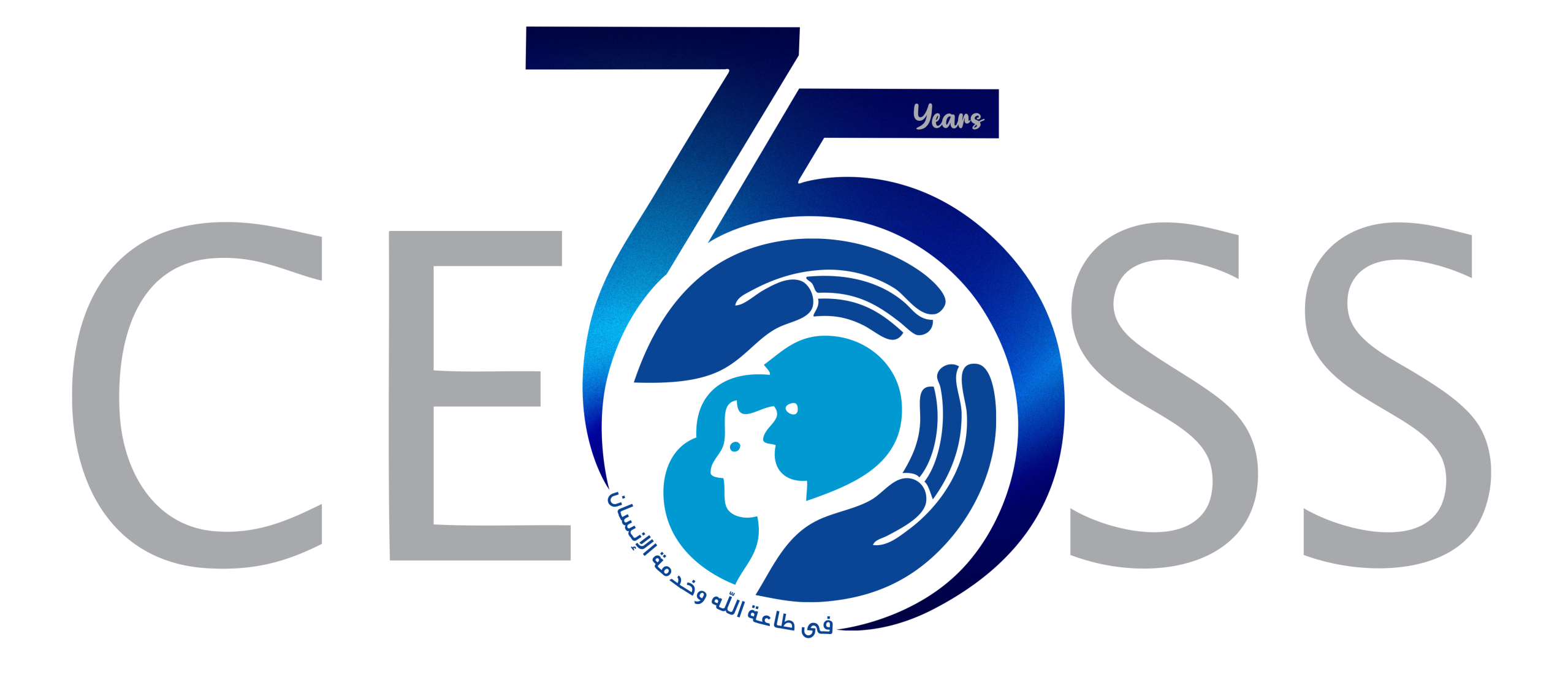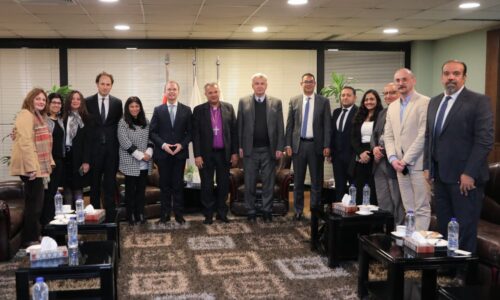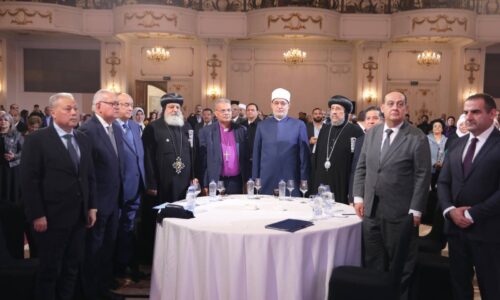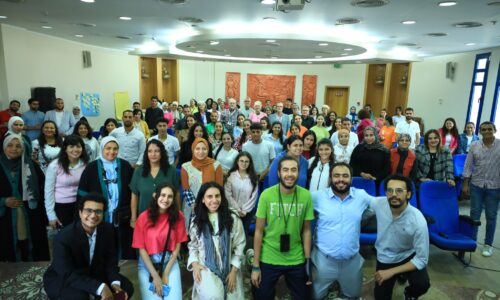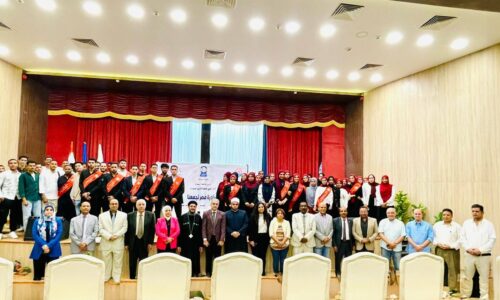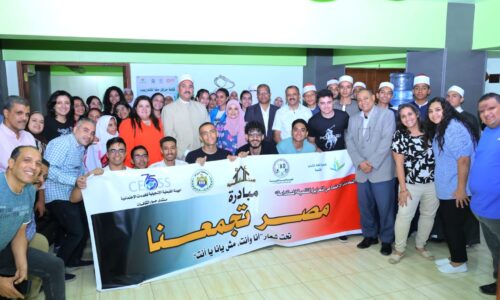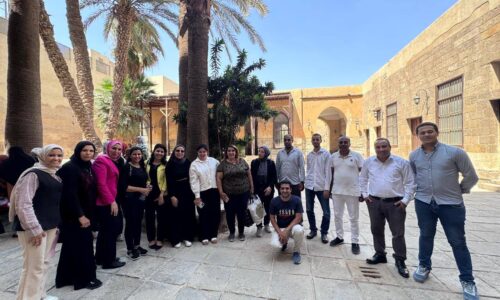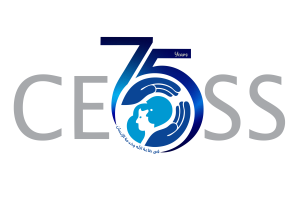Forum was created in 1992, as a part of the Coptic Evangelical Organization for Social Services (CEOSS) focusing on issues which is directly connected to cultural development: building tolerance and acceptance of others, mutual respect, peaceful coexistence, and others which target multiple categories of society.
Forum is established to support culture of dialogue through building an atmosphere of mutual respect and acceptance of diversity, to support social integration in order to help in building a pluralistic society and peaceful coexistence by targeting multiple categories such as intellectuals, opinion-makers, religious leaders, media Professionals and academics.
1- Forum will continue to support building understandings and creating safe spaces for dialogue to ensure diversity among all intellectual, political and religious currents focusing on the most moderate individuals beside involving them in planning of programs and activities and participate as speakers.
2- Continuing and deepening working with thought leaders and intermediate leaders of academics, media Professionals, clerics and young innovators.
3- Expanding building partnerships with institutions of mutual interest at local, regional and international level.
4- Trying to discuss visions and important issues and to reach to decision-makers.
5- Publishing dialogue values at local level and encourage social initiatives by presenting them in creative and innovative ways.
Unit working programs
1- Capacity Building program:
1. Young Leaders Program:
General Objective: is to support culture of dialogue and coexistence between new generation of religious leaders, media professionals, teachers, artists, university students, and leaders of civil society by deepening discussions about contemporary issues and encouraging the active role in building peace and social justice
Religious leaders
Building capacity of clerics and civil society leaders in order to become able to facilitate dialogue and trying to strengthen community ties to support values of tolerance, pluralism and respect for human rights
young media professionals
Building capacity of young media professionals by providing them with knowledge and skills to become able to facilitate dialogue and to play a vital role in building modern country and try to strengthen community ties to support values of tolerance, pluralism, respect for individual freedom.
Young innovators
Providing opportunities for young innovators to contribute in building democratic civil country and spreading values of pluralism, social justice and diversity within their local communities by using art such as painting, poetry performing and etc..
University student
Providing university students with needed skills that enable them to communicate with community leaders and decision-makers to demand cultural, economic and social rights.
academics program
Support the academics abilities including university professors and teachers to spread values of pluralism, tolerance and peace-building within their communities
2. CBOs Program
Building capacity of non-governmental organizations, community organizations, staff and facilitators in order to help spread the culture of dialogue and building a network to defense values of coexistence, democratic transformation and working as agents of change.
2- Advocacy program
The program aims to strengthen the role of thought leaders in building awareness and educating the public through thinking collectively of the community problems
3- Integrated Model with Development
Arab-European dialogue
The program help in building the required trust between the Arabs and the West by providing an example of dialogue between different cultures in the world while hatred and misunderstanding between nations and peoples are increasing in many countries of the world.
The Arab dialogue
It aims to support dialogue about problems of common interest in order to create a joint Arab vision regarding these problems among Arab civil society organizations to spread the acquired experiences and best practices of positive coexistence.
Arab-European dialogue
Sharing the best experiences relevant to democratic work and political transition through practical dialogue which creates a trend towards networking among intellectuals, policy-makers and effective authorities in civil society in Arab and European countries who have the ability to influence the public discourse or can help in spreading culture dialogue in their countries.
Arab Danish dialogue:
It helps in strengthening the role of inter-religious dialogue as a factor of mutual understanding and social cohesion to build peace and support rules of reconciliation, integration and political participation through shared religious initiatives. The program focuses on problems of freedom of religion and belief, freedom of thought, secular, religious neutrality, community cohesion, religious diversity, dialogue, democracy and building the capacity of youth in an ongoing process of learning from countries of Denmark, Egypt, Lebanon and Syria.
German Egyptian dialogue for youth
Providing a preliminary model which deals with challenges, allows learning and supports initiatives that help developing a culture of dialogue through different programs, forming steps in religious diversity, building bridges and opening channel for mutual understanding regarding important issues such as democratization.
Danish Egyptian dialogue:
As a continuation of the international dialogues began nearly since a decade in order to activate the dialogue with other cultures and try to develop an Arab vision towards some common issues such as intolerance, Positive coexistence, human rights, democracy and etc..
Experiences exchange between Africa and India:
It aims to identify the experience of diversity management in different communities and defining the fundamental challenges facing diversity and ways of mutual benefit through the visits exchange with dialogue concerned bodies.
German Egyptian research dialogue
American Egyptian Dialogue
Leaders for Interreligious Understanding LIU:
LIU is a program for Leaders for Interreligious Understanding started by four organizations in Syria, Lebanon, Egypt and Denmark in 2012.During the past three years, it received about 90 young leaders in various professional fields, such as journalists, researchers, artists, leaders of civil society and religious leaders in religious diversity management.
